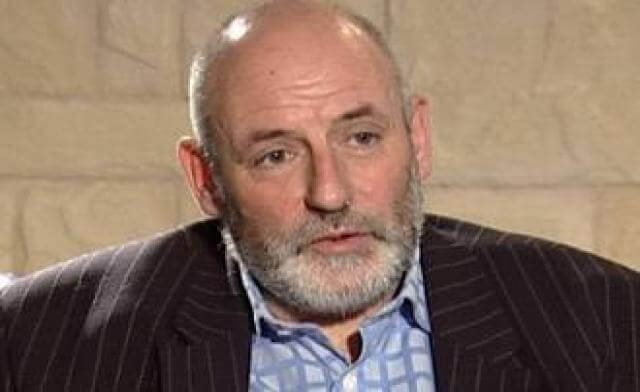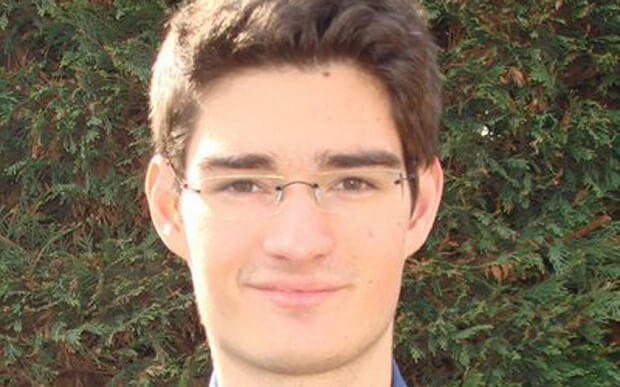Ricochet is the best place on the internet to discuss the issues of the day, either through commenting on posts or writing your own for our active and dynamic community in a fully moderated environment. In addition, the Ricochet Audio Network offers over 50 original podcasts with new episodes released every day.
 Syrian Refugees, Syrian Terrorists, Belgian Tourists, and Belgian Terrorists, Redux
Syrian Refugees, Syrian Terrorists, Belgian Tourists, and Belgian Terrorists, Redux
Part of me thinks, “Okay, Claire, you’ve said your piece, you’re not going to elevate the tone on Ricochet at this point by pressing it further.”
Another part of me thinks, “I don’t seem to have made my case successfully.” By which I mean: I don’t think I convinced the maximum number of people possible. And that part of me thinks, “My case, perhaps, is important. If I let go now, it will be out a desire for popularity and for an easier day, which I’ll legitimize to myself by telling myself I’ve elevated the tone.”
So I’ll just do the best I can. I’ll make a few more arguments — keeping in mind that many of you seemed to dislike the tone of my last post — and see if I can find a way to win a few of you around.
First let me first draw your attention to this piece by Megan McArdle (brought to my attention by Virginia Postrel) called How to Win Friends and Influence Refugee Policy.
Perhaps you’ve seen the arguments on social media since the Paris attacks last Friday: One faction rants that of course the U.S. must take in huge numbers of Syrian refugees, and fast, because of course refugees are not terrorists. Another faction argues that literally any amount of risk at all is too much. And then there’s Donald Trump, whose ideas about how to deal with the potential threat of Islamist terror are making me rethink my longtime ban on the use of the word “fascist” as a pejorative.
Actually, scratch that. Not “arguments.” The posts are not intended to convince anyone. They are to signal tribal loyalties to people who already agree with you, while you marinate in your own sense of moral superiority.
If these factions want to convince other people, they’re going about it all wrong. …
I’ll let you read it on your own, but suffice to say, she suggests that some of the argumentative techniques I’ve adopted on this subject thus far are unhelpful. Many of you seem to be in agreement. As the Chinese proverb suggests, when seven sober men tell you you’re drunk, it’s time to lie down; and given that I do want to change your minds, not offend you, I’ll take her counsel and yours.
I’ll get to all the points you raised in the comments, thematically, but not in one post, because it would be too disorganized. I’ll start by addressing what seemed to me the most extreme position: We should not only not accept Syrian refugees, but ban all Muslims from entering the United States. (This isn’t a strawman argument; if you look through the comments, you’ll see that it was suggested, I think seriously, by quite a number of people here.)
1. Assume for the sake of argument that it is not in the interests of the United States to accept Muslim immigrants, be they refugees, tourists, students, permanent immigrants, or temporary workers. I don’t accept this, but I’ll assume it.
If so, we need a plan to distinguish Muslims from non-Muslims.
Now, consider the terrorists in Mali (who from first reports appear to have been members of Al Mourabitoun, working in conjunction with Al Qaeda). They forced their hostages recite the Shahada. Those who could recite it were allowed to leave the hotel. Note that even the terrorists weren’t able to distinguish “Muslim” from “non-Muslim” by looking at their victims. Of course, their method doesn’t quite seem the American way, but even if it were, there’s no similar declaration that would indicate non-Muslim status.
(By the way, helpful tip: Just in case you ever need to recite the Shahada to save your life — a useful skill in this day and age, alas, like being able to tie a bowline knot — here’s how you do it.)
That’s what makes someone a Muslim, at least in the eyes of many.
So — if you want to keep all Muslims out of the US, you’ll have to follow one of the following strategies:
1. Make a statistical guess. Ban anyone from entering from a country where it is known that some or a majority of its citizens are Muslims.
2. But consider that visa arrangements are usually reciprocal, so if we embrace this strategy, Americans would probably be banned in turn from traveling to a significant part of the world. Also, should we deny visas to everyone from some of the countries with the world’s largest Muslim populations, we would essentially be shutting down a large part of our own economy: People travel from these countries not just for tourism, and not just to study at our universities (although foreign money plays a major role in propping up those universities), but to invest and do business. Almost 40 percent of the world’s Muslims live in Indonesia, India, and Pakistan. Some 130,000,000 Muslims live in China. There are about 10,500,000 Muslims in the Philippines, about 700,000 in Argentina, and probably 7,500,000 in France. (We don’t know for sure; it’s illegal to take a formal census based on religion or ethnicity in France, but pollsters do it, and I suspect they’re probably close.) There are 5,800,000 Muslims in Germany. Cutting off travel to the United States from so many countries would be extremely costly — and as I said, would be likely to be reciprocal. (There are also 3,390 Muslims in Aruba — along with the Caribbean’s best wreck dives, apparently.)
Given that most people from those countries have no intention of coming to the United States to harm it, this would be a highly indiscriminate approach to the problem, with huge costs — not just financial, but reputational. We’d look like lunatics if we said, “We’re so afraid of terrorists that we won’t even allow Amir Khan to fight Manny Pacquiao in Las Vegas.” Does it matter if we look like lunatics? You bet it does. You want to be a diplomat sitting aside your opposite number in the Philippines trying to explain why they should hand over business visas to our executives from CocaCola, Citibank, Procter & Gamble, Hewlett-Packard, Microsoft, Texas Instruments, and McDonalds, even though we won’t give one to Pacquiao?
3. It makes much more sense to deny visas, or to be extremely cautious in our visa regime, when dealing with countries that consistently produce terrorism-prone populations of Muslims (or any kind of terrorist). It would be insane, say, to deny a student visa to Vietnamese citizen on this basis, given that not one of the earth’s 400,000 Cham Muslims has ever participated in terrorist attack. It would not be insane to scrutinize the application of a Belgian citizen with especial caution, given that by some estimates, Belgium has supplied the highest per capita number of fighters to Syria of any European nation – between 350 and 550, out of a total population that includes fewer than half a million Muslims.
4. That still leaves a lot of gray area. Let’s say, “Fine, we let in Pacquiao, but we sure won’t let in one single Muslim from the Philippines, given that Abu Sayyaf’s now waving the black standard.” And we apply this to any other country with an ISIS problem.
Problem solved? Not really.
First, I reckon at least a few countries would take great umbrage: Islam is the second-largest religion in India, for example, with 22 Muslims sitting in the 16th Lok Sabha. It would be utterly poisonous for India’s own domestic politics if the Modi government went along with this; they would really have no choice but to reciprocate by saying that they’ll give no US citizen a visa until we clear this nonsense up.
There goes our relationship with Israel, too: Muslims are 17.4 percent of the Israeli population, including 16 members of the Knesset. No Israeli government could afford to say, “Well, sadly, the US won’t give those members of our visiting delegation a visa, but this won’t affect our special relationship.” Bibi Netanyahu truly does not want to make the speech that begins, “Israel protects the full equality of Jews and non-Jews alike. This is the essence of the declaration of independence, which we follow, except when the United States tells us that it won’t grant 17 percent of our citizens any kind of visa.” So much headache for him down that path I get one just thinking about it.
It gets more problematic still. Continue to assume it’s illegal to come to the US as a Muslim. If your intention is to come to the US to disrespect the law anyway — by committing terrorism — you will conceal your Muslim identity. If someone is determined to come to the United States to kill as many of us as he can, he’s probably willing to lie when asked if he’s a Muslim.
5. But surely we can tell anyway? By the way they look? By their names? Well, no. “Muslim” is a religion, not a race. Now, two of our members have claimed that  as people who’ve been in Europe all their lives, they would not have mistaken Salah Abdeslam (to the left) for anything but an Arab.
as people who’ve been in Europe all their lives, they would not have mistaken Salah Abdeslam (to the left) for anything but an Arab.
Really? Don’t think that’s a face you might see in, say, Greece? Have a look at th e Greek football team, below. Frankly, the Yug
e Greek football team, below. Frankly, the Yug oslav face to the right looks more Arab than any of them, to me.
oslav face to the right looks more Arab than any of them, to me.
Point is, there’s been a lot of genetic exchange in this part of the world; I’ve seen Turks with eyes as blue as saphhires; I figure maybe their ancestors were pre-Battle -of-Poltova Swedes, maybe.
But even if it could be done, it’s not enough: It’s not enough to be able to spot the Arabs, you have to spot the Muslims: Arabs include Christians, Druze and Baha’i, and they even include atheists. And Jews. And while I could probably make a better-than-average guess, I’d never bet my life or anyone else’s on my ability reliably to distinguish, visually, among the peoples of the Arab and Mediterranean world — you’ve got Greeks, Albanians, Bosniaks, Croats, Assyrians, Armenians, Mandeans, Copts, Maronites, Berbers, Kurds, Turks, Iranians, Azeris, Circassians, Shabaks, Turcomans, Romani, Chechens, and Jews in these parts — and while most of them are Muslims, some very emphatically are not; and yes, some of them have been terrorists but not Muslims. So visual identification is out. I look Muslim enough that I’m worried if we use that criteria, I’ll never be able to come home.
Because it’s Sunday, let’s play a game: Spot the Muslim. No using Google. Tell me how you score:






6. But what about their names? Surely that’s a dead giveaway? Well, I’d be dead suspicious of someone named Mohammed Islam Osama al-Baghdadi, which is why I’d probably change my name before flying to America to attack it. It’s pretty easy to do in France, at least — and positively encouraged if you make the case that you’d like to do it so better to be assimilated:
My client is called Rachid. Mr K* wishes to modify this first name in order to be fully assimilated, and he wishes to highlight the following reasons. 1. Mr K* is not attached to his first name; Mr K* was born in France and has always been a French resident; Mr K* is registered as a ward of state. He does not know his parents. His father never recognized him as his own and never saw him. He has no memory of his mother. 2. Mr K* wishes especially to be able to demonstrate his complete assimilation to French society with a French first name that he can use in his occupation. Mr K* is 26 years old. He has a professional chef’s diploma, and specializes in pastries and baking. Mr K* works in wellknown Parisian restaurants. He wishes to have a French-sounding first name so that his first name will not hinder him in the development of a successful career. (Excerpt from a “requête” filed in 2009. The applicant was born in France to an Algerian-born mother) …
So really, no way to do it reliably.
Now, someone’s about to say, “But the Israelis — ” Let me head you off at the pass. I’ve written about this here before. (Don’t click on the link if you’re feeling sensitive to snark today.) It just won’t work for us.
So: Keeping all Muslims out of the US will be exceptionally difficult to do. I leave it to you to suggest how it could be done in a way that does more good than harm.
I have more to say — chiefly in response to the questions, “But why should we admit refugees? What’s in it for us?” and “What’s to say we won’t end up like Belgium if we allow more Muslims to come to America?” They’re both good questions. But I’ll leave those for the next installment. Let’s just focus on this part, first. (We’ll get back to Viktor Orbán one of these days, too.)
The main thing is that the policy — whatever it is — must do more good than harm.
So let me know how you’d approach it.
Published in Foreign Policy, General, Islamist Terrorism, Religion & Philosophy



You can almost hear the glee and sigh of relief when newspapers write that the late Paris jihadists were stoners. Ah! Proof that they were frauds and not real Muslims! But debauchery is not quite so uncommon in future martyrs. The 9/11 terrorists and I believe Major Hassan all frequented strip clubs in the lead up to their attacks. This in no way detracted from their zeal or piousness, because to them, martyrdom is the ultimate get-out-of-hell free card. All your sins are forgiven.
Bless yore pea-pickin’ heart.